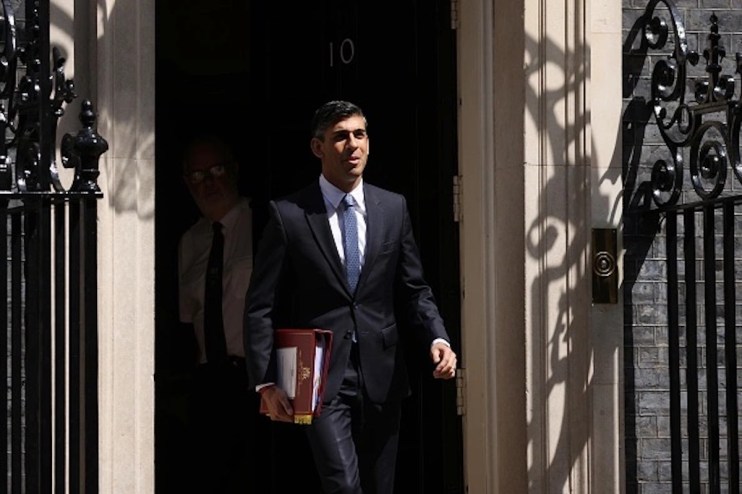Are the Conservatives on course to lose the next general election?

Local election results are seen as a crucial test for governments – and oppositions.
They provide parties with a sense of momentum; a narrative about the country’s direction; and vital data for political number crunchers to pore over.
One particularly key metric we can extrapolate from them is the estimated national vote share.
Not all councils across the UK hold local elections at the same time. Voters in London, Wales and Scotland didn’t cast ballots yesterday, and Northern Ireland postponed until May 18.
But once enough results have come in from places which did vote, statisticians are able to estimate how the picture would have looked across the country, had everyone had a go.
This gives an estimate for what share – or percentage – of the vote in a general election each party would receive.
Nine point Labour lead
BBC political scientists Sir John Curtice and Stephen Fisher produce numbers for the projected national share.
Their predictions, revealed mid-afternoon, project that if all of Britain had voted in yesterday’s elections, and behaved in the same way as those who did, the Conservatives would get just 26 per cent of the vote.
Labour’s share of the vote would have been 35 per cent, while the Lib Dems would have received 20 per cent. Other parties would have received a total of 19 per cent.
Curtice told the BBC the nine-point Labour lead over the Conservatives was the largest since the party left office in 2010.
But he added: “Although Labour have met the minimum threshold they set themselves, the party will be disappointed that it has not been any more successful this year than last.”
Degree of caution
While psephologists Michael Thrasher and Colin Rallings calculate the national equivalent vote, which will be published in the Sunday Times.
Both metrics can only give an indication but are seen as a reliable indicator of how a general election might turn out.
Thrasher has given an estimate for the vote share results from these elections to Sky News, which he says suggests Labour is set to be the largest in Westminster but will fall short of a majority.
His estimate came after 1.7m votes were counted overnight – but there is a degree of caution involved with thousands of seats still to be declared.
Across 900 wards, measuring the change in vote share, the Conservatives result is forecast to be between 28 to 30 per cent, while for Labour the range is 36 to 38 per cent.
Falling short?
The Lib Dems, Thrasher said, are making gains and projected to win 18 to 20 per cent, while the share for other parties is between 16 to 19 per cent.
He told Sky: “Assuming a uniform national swing, these vote shares and applying them to the seats decided at the last general election suggest that Labour is on course to become the largest party at the next election but falling short of winning an outright majority.”
Results from 102 out of 230 councils have been declared and the Conservatives have lost 278 seats, while Labour gained 219, the Lib Dems gained 104 and the Greens gained 43.
The Tories lost 19 councils, while Labour gained six and the Lib Dems three.
